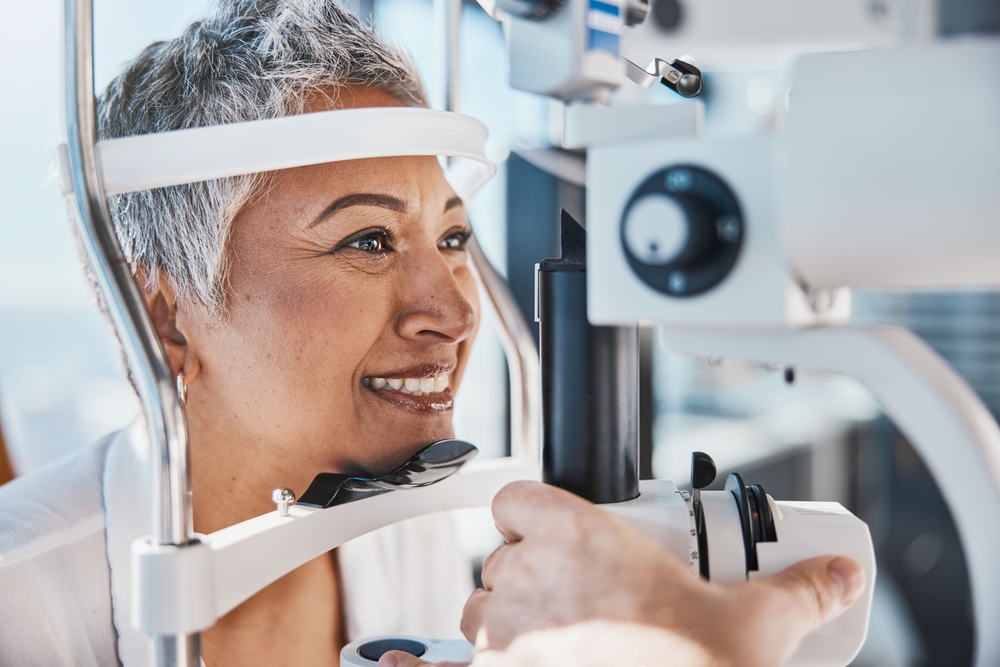Annual Eye Exams Prevent Vision Loss in These Patient Groups
Submitted by Elman Retina Group on March 21, 2024

According to the Centers for Disease Control and Prevention (CDC), 93 million adults in the United States are at high risk for vision loss. Yet half of those at risk did not schedule eye exams in the past 12 months. Annual comprehensive eye exams are an essential part of preventive care and help ensure that people with diabetes and other conditions or factors that increase their likelihood of irreversible vision loss receive proactive treatment. Our board-certified ophthalmologists and retina specialists at Elman Retina Group explain the importance of annual eye exams for certain patient groups.
People Over 65
Many eye diseases are age-related, such as cataracts, glaucoma, macular degeneration, and diabetic retinopathy. People 65 and older should have eye exams yearly to catch these diseases early. The earlier a vision issue is detected, the more likely it can be treated or stalled to prevent further damage to the ocular structures. Most of these eye diseases cause permanent damage before patients experience symptoms, and comprehensive eye exams are the only way to identify them in their early stages.
Annual eye exams could save your vision and even identify warning signs of a larger health issue, such as diabetes or stroke.
A Family History of Eye Disease
While eye diseases have multiple potential causes, there is also a genetic component. Having a family member with glaucoma increases your chances of getting glaucoma up to nine-fold. Your family history is a valuable piece of the puzzle in predicting your chances of developing that eye condition and should make you more diligent about having frequent eye exams.
Age-related macular degeneration (AMD) is another leading cause of blindness with genetic links. AMD causes central vision loss, and about one in five AMD patients has a sibling or parent with the same condition. A close relative with AMD makes someone four times more likely to have AMD and develop the late stage in which geographic atrophy causes severe vision impairment and even blindness.
Diabetic retinopathy is another eye disease with genetic links, as is diabetes. Long-term, uncontrolled blood sugar damages the blood vessels in the retina, causing vision changes and impairment, and about 20% to 25% of your risk for diabetic retinopathy is hereditary.
Regular eye exams are essential for people with a family history of eye disease. The best thing you can do for your vision is to schedule annual appointments to catch the condition early and improve your odds of maintaining your eyesight.
A Diabetes Diagnosis
The longer you live with diabetes, the more likely you are to develop diabetic retinopathy. Annual eye exams are the only way to determine how your blood sugar levels affect your eye health. Even if your vision is normal, you could have early stages of retinal damage. Our eye doctors can help preserve more vision if diabetic retinopathy is caught sooner. If you have diabetes, you are also more likely to have early-onset cataracts, glaucoma, and dry eye disease.
The American Diabetes Association and the American Academy of Ophthalmology recommend people with type 2 diabetes have a dilated eye exam as soon as possible and every year thereafter, because they have likely lived with diabetes for many years already. Those with type 1 diabetes should schedule one within five years of a diabetes diagnosis and annually thereafter.
People over 65 with a family history of eye disease or a diabetes diagnosis need annual eye exams to maintain healthy eyes and good vision. Eye doctors use various tests to measure intraocular eye pressure and examine the retina and other structures to identify early signs of eye disease.
If you’ve been diagnosed with a retinal disease, contact Elman Retina Group in Glen Burnie and Pikesville, Maryland. Schedule an appointment with one of our retina specialists by calling (410) 686-3000.



